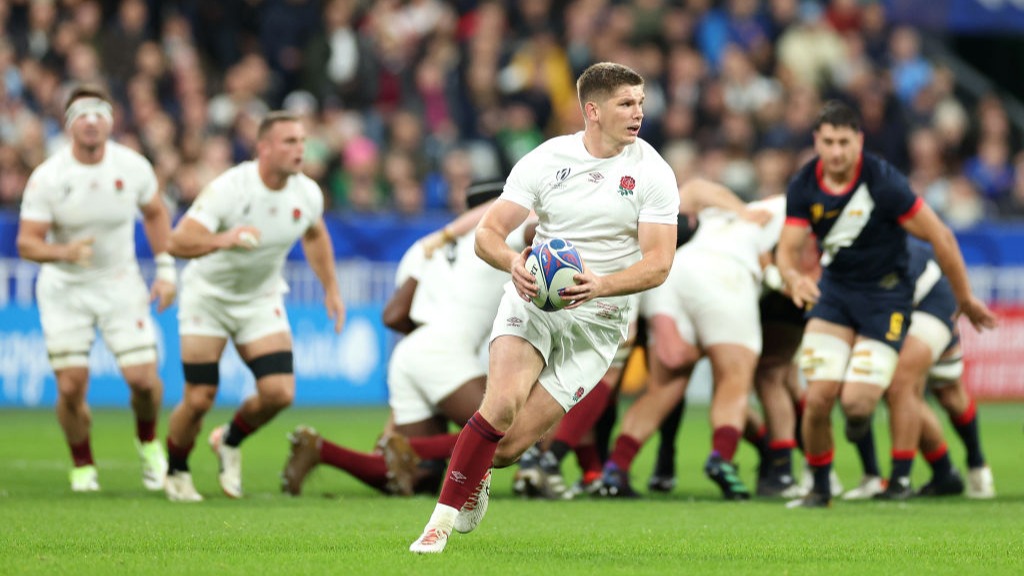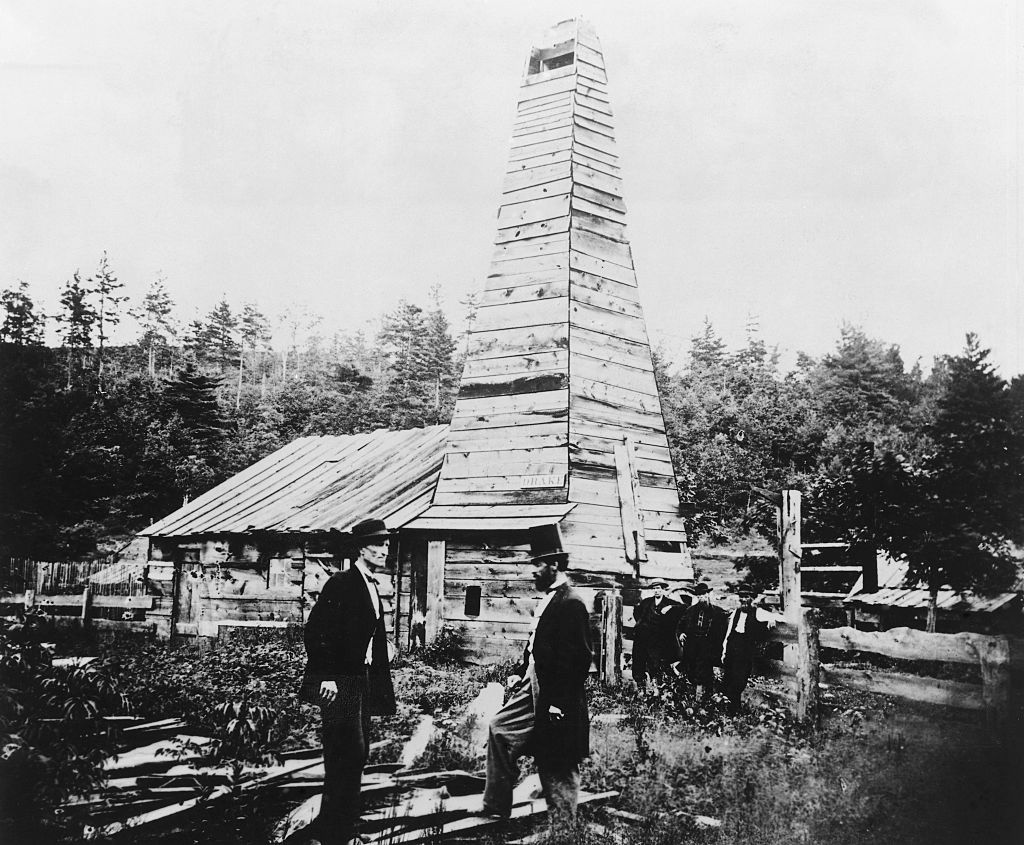27 August 1995: Rugby Union turns professional
On this day in 1995, the International Rugby Board agreed to bring the era of amateur rugby to an end.


Get the latest financial news, insights and expert analysis from our award-winning MoneyWeek team, to help you understand what really matters when it comes to your finances.
You are now subscribed
Your newsletter sign-up was successful
Want to add more newsletters?

Twice daily
MoneyWeek
Get the latest financial news, insights and expert analysis from our award-winning MoneyWeek team, to help you understand what really matters when it comes to your finances.

Four times a week
Look After My Bills
Sign up to our free money-saving newsletter, filled with the latest news and expert advice to help you find the best tips and deals for managing your bills. Start saving today!
Rugby, as everybody knows, is a game played by gentlemen and ladies too. But it wasn't always. That's if we take the slightly old-fashioned meaning of “gentlemen” to mean the public-school educated. Since the inception of the Rugby Football Union (RFU England's rugby governing body) in 1871, rugby was tremendously popular with the working classes in northern England, particularly in Yorkshire and Lancashire.
But that created a problem. The RFU insisted that, to maintain the sporting spirit of the game, rugby had to be played by amateurs. The matches, however, were often played on Saturdays, which back then, was a working day. That meant lost earnings for the pit miners and factory workers who wanted to play. The solution for a number of northern sides was to pay “broken time” to the players for the lost hours.
The RFU found this unacceptable. It was tantamount to being paid to play the game. Meetings to resolve the issue ended in deadlock, and in 1895, many of the northern clubs went off to found Rugby League – the “other code” being Rugby Union. And that's how things more or less stood for almost exactly 100 years.
MoneyWeek
Subscribe to MoneyWeek today and get your first six magazine issues absolutely FREE

Sign up to Money Morning
Don't miss the latest investment and personal finances news, market analysis, plus money-saving tips with our free twice-daily newsletter
Don't miss the latest investment and personal finances news, market analysis, plus money-saving tips with our free twice-daily newsletter
But, of course, the world moved on. Professionalism was already creeping into the game by the 1980s. Many of the best Rugby Union players were quick to forget their 19th century scruples, and went off to play League for the money.
Then came the first Rugby Union world cup at the end of the decade in 1987. While only just breaking even, it raised the profile of the sport. But it was during the third world cup in 1995 that the world really fell in love with Rugby Union.Who could forget that famous moment that symbol of reconciliation following so closely on the apartheid era when South Africa's first black president, Nelson Mandela, handed the victorious white South African captain, Francois Pienaar, the trophy?
That year in 1995, Rupert Murdoch and fellow media mogul Kerry Packer flooded the sport with multi-million pound television deals particularly in the southern hemisphere. Players started taking sponsorship payments, leading to accusations of “shamateurism”. Unable to hold back the tides of change, the International Rugby Board (IRB), now called World Rugby, agreed to do away with Rugby Union's amateur status on 27 August 1995.
But, while Rugby Union continued to attract ever larger amounts of money, the salaries of the highest paid players still lag behind their association football counterparts. Rugby Union's highest earner, Owen Farrell, takes home a yearly salary of £1.2 million. While that's no paper round, Portugal's football superstar, Cristiano Ronaldo, earns roughly £3.4 million per week. Rugby Union players still have a long way to go.

Get the latest financial news, insights and expert analysis from our award-winning MoneyWeek team, to help you understand what really matters when it comes to your finances.

-
 ISA fund and trust picks for every type of investor – which could work for you?
ISA fund and trust picks for every type of investor – which could work for you?Whether you’re an ISA investor seeking reliable returns, looking to add a bit more risk to your portfolio or are new to investing, MoneyWeek asked the experts for funds and investment trusts you could consider in 2026
-
 The most popular fund sectors of 2025 as investor outflows continue
The most popular fund sectors of 2025 as investor outflows continueIt was another difficult year for fund inflows but there are signs that investors are returning to the financial markets
-
 13 April 1960: the first satellite navigation system is launched
13 April 1960: the first satellite navigation system is launchedFeatures On this day in 1960, Nasa sent the Transit 1B satellite into orbit to provide positioning for the US Navy’s fleet of Polaris ballistic missile submarines.
-
 9 April 1838: National Gallery opens in Trafalgar Square
9 April 1838: National Gallery opens in Trafalgar SquareFeatures On this day in 1838, William Wilkins’ new National Gallery building in Trafalgar Square opened to the public.
-
3 March 1962: British Antarctic Territory is created
Features On this day in 1962, Britain formed the British Antarctic Territory administered from the Falkland Islands.
-
10 March 2000: the dotcom bubble peaks
Features Tech mania fanned by the dawning of the internet age inflated the dotcom bubble to maximum extent, on this day in 2000.
-
9 March 1776: Adam Smith publishes 'The Wealth of Nations'
Features On this day in 1776, Adam Smith, the “father of modern economics”, published his hugely influential book The Wealth of Nations.
-
 8 March 1817: the New York Stock Exchange is formed
8 March 1817: the New York Stock Exchange is formedFeatures On this day in 1817, a group of brokers moved out of a New York coffee house to form what would become the biggest stock exchange in the world.
-
7 March 1969: Queen Elizabeth II officially opens the Victoria Line
Features On this day in 1969, Queen Elizabeth II took only her second trip on the tube to officially open the underground’s newest line – the Victoria Line.
-
4 March 1519: Hernan Cortes arrives in Mexico
Features On this day in 1519, Hernan Cortes landed in Mexico before marching on the Aztec capital, Tenochtitlan.